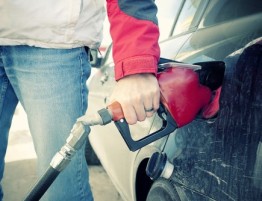Diesel is making a comeback. As drivers seek out more fuel efficient vehicles, some buyers are ignoring hybrids and electric cars altogether and opting for diesels’ superior highway MPG and torque. So what are some things you should know before going diesel?
1. Going the Distance
Americans love hybrid gas/electric cars that have helped shape fuel efficiency standards over the past several years. But unless you live on the island of Manhattan or inside The Loop in Houston, and typically only travel short distances, a hybrid car may not actually be the most fuel efficient vehicle or budget-friendly choice to drive.
In contrast to hybrids, diesel engines do remarkably well on the highway. Diesel engines produce more power and torque at relatively low engine revolutions, which creates more efficient energy for distance driving. One gallon of diesel fuel generates 147,000 BTUs, whereas one gallon of gas gives off about 125,000 BTUs. (A BTU, or British thermal unit, is a unit of measurement used to measure energy.) That extra 22 BTU/gallon produces more power while using less fuel in the process, and is the main reason why so many large vehicles run on diesel fuel.
2. How Much at the Pump?
In some countries, the price of diesel is actually cheaper than gasoline, but sadly that isn’t the case here. U.S. Diesel has many more uses than gasoline; therefore, the demand is higher. Low supply and high demand means higher prices. The good news is diesel engines typically deliver 15 to 30 percent higher mileage than gas.
3. Value of Diesel Vehicles
Fuel isn’t the only expense; diesel vehicles are pricey as well. Diesel engines used in road transport are costly to produce, which increases the price of the car. If you’re in the market for a new vehicle, keep in mind a diesel engine will run a several thousand more than a car with a gasoline engine.
On the other hand, diesel vehicles hold their value more so than gasoline vehicles. If after owning a diesel you decide to sell it, its resale value will be noticeably higher than its gas-powered equivalent.
4. What’s That Smell?
Diesel and gasoline are similar in composition. However, when you’re at the pump, you will notice a distinct difference in the smell of diesel versus unleaded gas. This is mainly due to the fact that unleaded gas evaporates quicker and doesn’t leave a residue like diesel. Diesel also has a sleek consistency that allows it to transfer from object to object, like from a gas nozzle to your hand. This is why when you fill up, you often have a lingering odor of diesel.
5. They Are Everywhere
Well, not everywhere, but diesel pumps are found in over half of all fueling stations. Diesel’s availability to the public has become much more ubiquitous over the years, with over 180,000 gas stations carrying the fuel. As sales of diesel cars continue to climb, the number of stations offering diesel fuel will increase.
At Dillon’s Automotive, our team of trained technicians has extensive experience working on diesel engines and knows how to handle these special vehicles. Schedule an appointment today to have us give your diesel engine a check-up.


